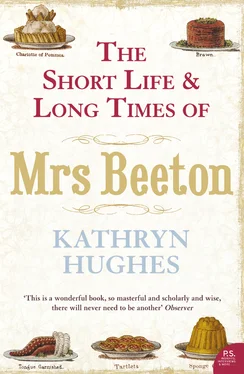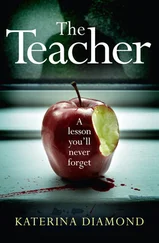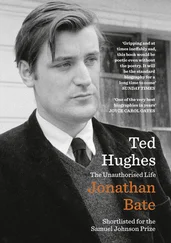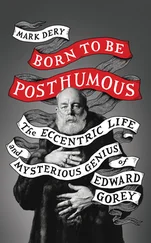1 ...7 8 9 11 12 13 ...33 There remains some mystery about Elizabeth’s finances during her widowhood. Benjamin had not left a will, and ten days after his death she was granted administration as his ‘relict’. His estate amounted to £8,000, a small fortune. However, much of this must have been tied up in stock and Benjamin doubtless left a fair number of outstanding debts to his suppliers that needed to be paid before it was possible to get any sense of the real value of his legacy. For how else can one explain the fact that only two years later Elizabeth, now reunited with Isabella and Bessie, is writing a begging letter to her father-in-law in Great Orton? From John Mayson’s reply it transpires that warehousing has not been kind to Elizabeth: quite possibly the drapers to whom she tried to sell her cloth were not happy dealing with a young woman. Certainly it looks as if she was thinking of switching to another trade, perhaps lodging house keeping like her mother. We will never know the precise nature of Elizabeth’s problems, since the letter to her father-in-law has been lost. Here, though, is the Revd Mayson’s reply:
My dear Bessie
I am sorry the business you entered upon did not answer your expectations. Of the one you are going to begin I can form no opinion, as I am totally ignorant about it. You say you have seen a House which might answer your purpose. You do not mention the Rent, but I understand the first Quarter’s Rent is to be paid in advance, and if the rent be high you will observe another Quarter’s Rent will soon be due. Do you suppose you will be able to meet it at the time, as he requires a Qr. in advance? I am afraid he will be a sharp landlord.
You say you want a little money. I think I can advance you 50£, if that will do. Since last Christmas I have had a great deal to do. As I was not able to do any Duty, I was obliged to engage a curate. I think I shall never be able to attend the Church again to do Duty. If 50£ will be of any service to you, after you receive it you must send me a Note, as I wish at my Decease to have something made up for your children, and the above 50£ was part of it. I intended to make you an allowance yearly. But if I do too much there will be less afterwards. I assure you I am anxious to save something for my little grandchildren. I have my curate to pay quarterly. I do not wish you to sell your house, and also not to lay out your money extravagantly. I hope to hear that you are doing well. Carefulness will do a great deal.
I am sorry to say I do not improve much, I cannot leave Home. I do not enjoy Company. I am best when alone. I was glad to hear that you and the little ones were well. Make my love to Isabella and Bessy. The other 2 do not know me. They are very well at Thursby. I have not seen them lately except Anne who was at our House yesterday. I have not had much of Anne’s Company lately. I want to know when Esther was born. I have forgot. Write soon.
With kind regards I subscribe myself,
Yours sincerely,
JOHN MAYSON
This letter is puzzling both in what it conceals and reveals. Mayson’s quavering voice, raised in complaint at a hostile world, suggests an old man, battered by grief at having recently lost both his wife, the original Isabella, and his only living son. Obligations – to his curate, to his widowed daughter-in-law, to his grandchildren – weigh like lead upon him, yet he feels unsupported by the people who should love him back, his daughter and teenage granddaughter at nearby Thursby. To Elizabeth, a crisp young woman who had grown up watching her parents run an expanding business, it must be galling to be told by an elderly clergyman that rent comes due every quarter. The reminder that carefulness will achieve much is likewise the last thing to say to a woman who has lain awake at night worrying about how to raise four children alone and on a dwindling income. Mayson’s fussiness over his post-mortem financial plans is odd, too, when you consider that, on his death three years later, it turned out that he had not got round to making a will. His substantial estate of £1,500 passed automatically to Esther Burtholme, his only living child, an already prosperous farmer’s wife. The little cockney grandchildren, about whom the Revd Mayson said he cared so much, got nothing.
Perhaps, though, by the time of his death Mayson felt that Elizabeth’s fortunes had shifted sufficiently for him not to have to bother. For it is now that the stalled courtship story reaches its happy ending. The bare facts are these: only eight months after writing that letter to her father-in-law, we find Elizabeth getting married again. Her husband is Henry Dorling, the young printer who had lodged in her mother’s boarding house all those years ago. This means that the two young families must have stayed in touch: godparenting in the nineteenth century was a serious business, and it is highly unlikely that Benjamin Mayson, a clergyman’s son, would have let his relationship with young Henry Mayson Dorling lapse. So Elizabeth would have been quite aware that Dorling’s wife had died giving birth to her fourth child, only a few months before she had lost her own Benjamin. The early biographers see in this symmetry – both Henry and Elizabeth recently widowed, both with four children apiece – a lovely coincidence, a lucky chance to make the fairy story come out right. But the fact is that this second marriage was as cool as a business deal. Elizabeth needed a husband to rescue her from life as a ‘warehouseman’, and Henry was looking for a mother for his children.
In the spring of 1843 Elizabeth and Henry headed north to Great Orton, so that John Mayson could meet the man who was going to replace his late son. On 24 March the couple headed over the border to Gretna where they were married by John Linton the hotel keeper who doubled as ‘priest’. The witness was Anne Burtholme, now 19 years old and doubtless delighted to play a key part in such a sweetly romantic business. The wedding party – which consisted of the couple, together with Anne and her father John Burtholme – had a hearty wedding breakfast washed down with ale, whisky, and gin.
Did John Mayson, a clergyman of the Church of England, approve of this, the nineteenth-century equivalent of getting married in a Las Vegas wedding chapel? Probably not. Perhaps, too, Elizabeth and Henry had surprised themselves by their skittishness, the last time in their lives that they displayed such impulsive behaviour. Or perhaps the fact that Elizabeth was already pregnant made them rush: baby Charlotte would be born only seven and a half months later. Whatever the reason, the very next day Henry Dorling returned to London and applied for a licence to marry ‘Elizabeth Mayson, widow’ in the old-fashioned way. On 27 March they did the whole thing all over again and walked up the aisle at St Mary’s Islington, the parish where Elizabeth was temporarily living. And then shortly afterwards, gathering up her four children and her mother, the newly minted Mrs Dorling headed off to her second husband’s family home in Epsom, to the place that would become the shape, the sight, and the sound of Mrs Beeton’s childhood.
‘The Free, Fair Homes of England’
Caption to the Frontispiece of the Book of Household Management
YOU DO NOT have to get very far into the Book of Household Management ( BOHM ) to realize that one of its main preoccupations is the loss of Eden. The Frontispiece is an exquisitely coloured plate that shows an extended family group from the early nineteenth century, clustered around the door of a tiled cottage at harvest time. The men are plump John Bulls, prosperous in gaiters. The principal female figure is serving them beer which, judging from the golden haze in the middle distance, she has brewed from her own grain. In the foreground ducks dabble, hens peck and cows drowse under a tree, while a bulldog keeps a beady watch on the men gathering hay on the horizon. The caption underneath explains that this scene represents ‘The Free, Fair Homes of England’, a line from the Romantic poet Felicia Hemans. In other words, here is a time before industrialization scarred the land, cut a generation of town dwellers from its gentle rhythms, and replaced convivial kin groups with edgy strangers.
Читать дальше












